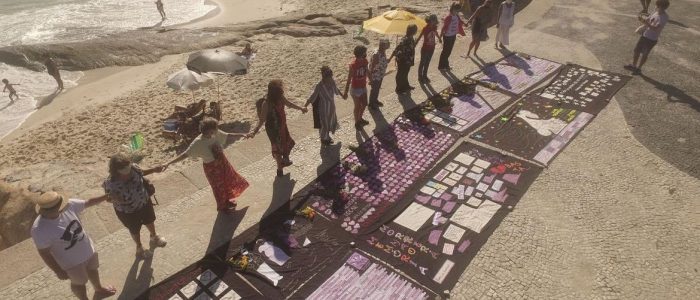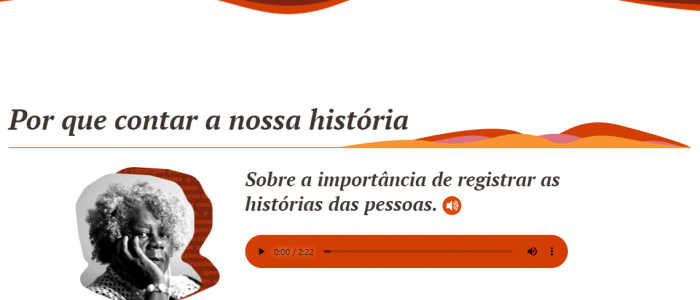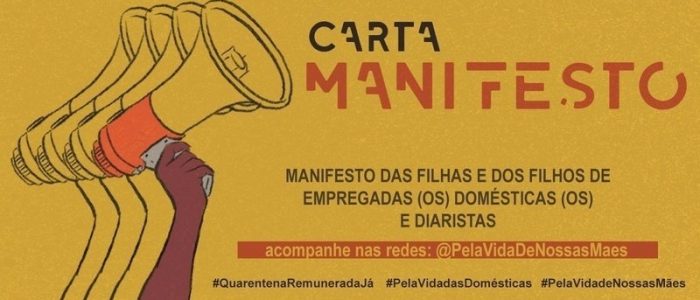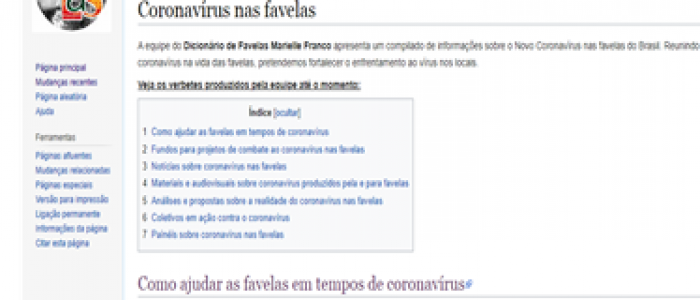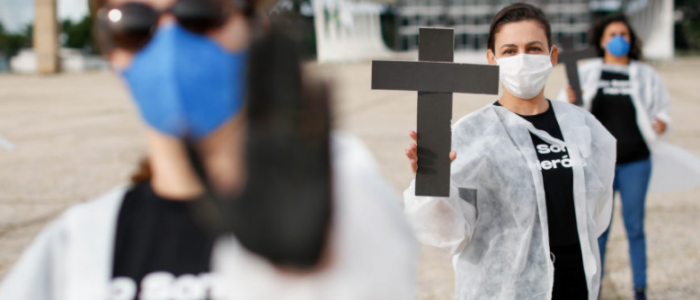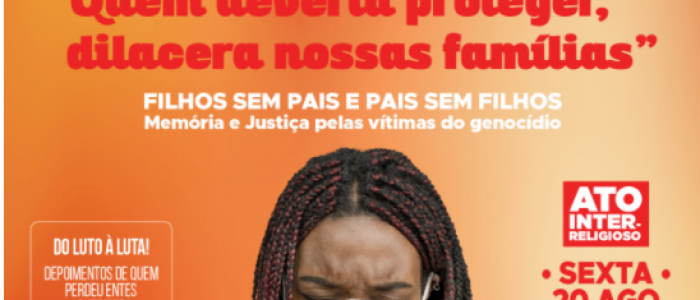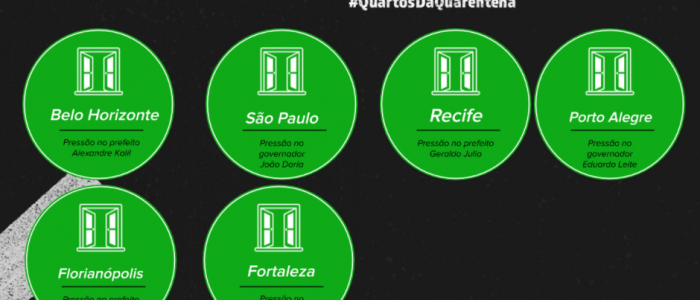Durante o período de isolamento social, os coletivos de bordado político foram impedidos de realizar seus encontros presenciais e manifestações, o que levou as integrantes a se manifestar ativamente em suas redes sociais, principalmente por meio de posts no Instagram. Os bordados realizados nesse momento costumavam envolver temas como: defesa do isolamento social e das medidas sanitárias para prevenção do covid-19, a demanda pela vacina gratuita para todos, a valorização do Sistema Único de Saúde, entre outras. Imagem: Linhas de Sampa – disponível em: https://www.instagram.com/p/CJy4aEHHRB2/?igshid=MzRlODBiNWFlZA==
- Tipos de mobilização: Artivismos, Ativismo Digital, Protestos na Era da Pandemia



